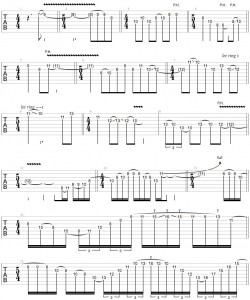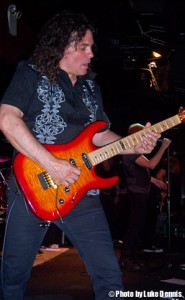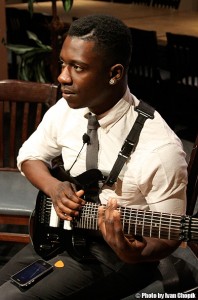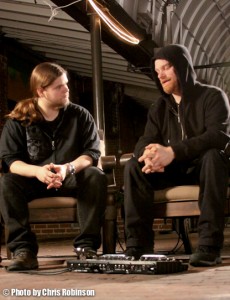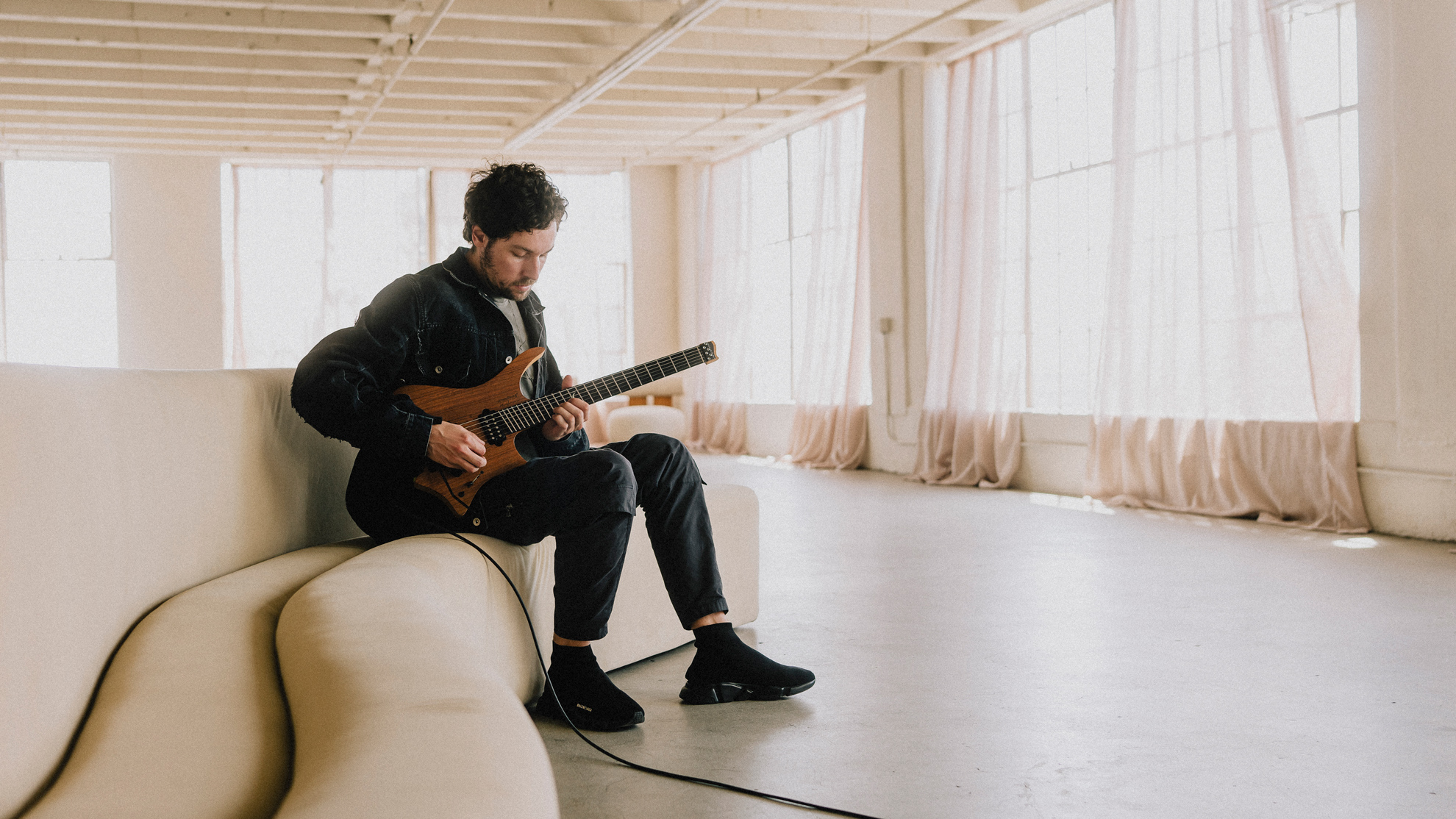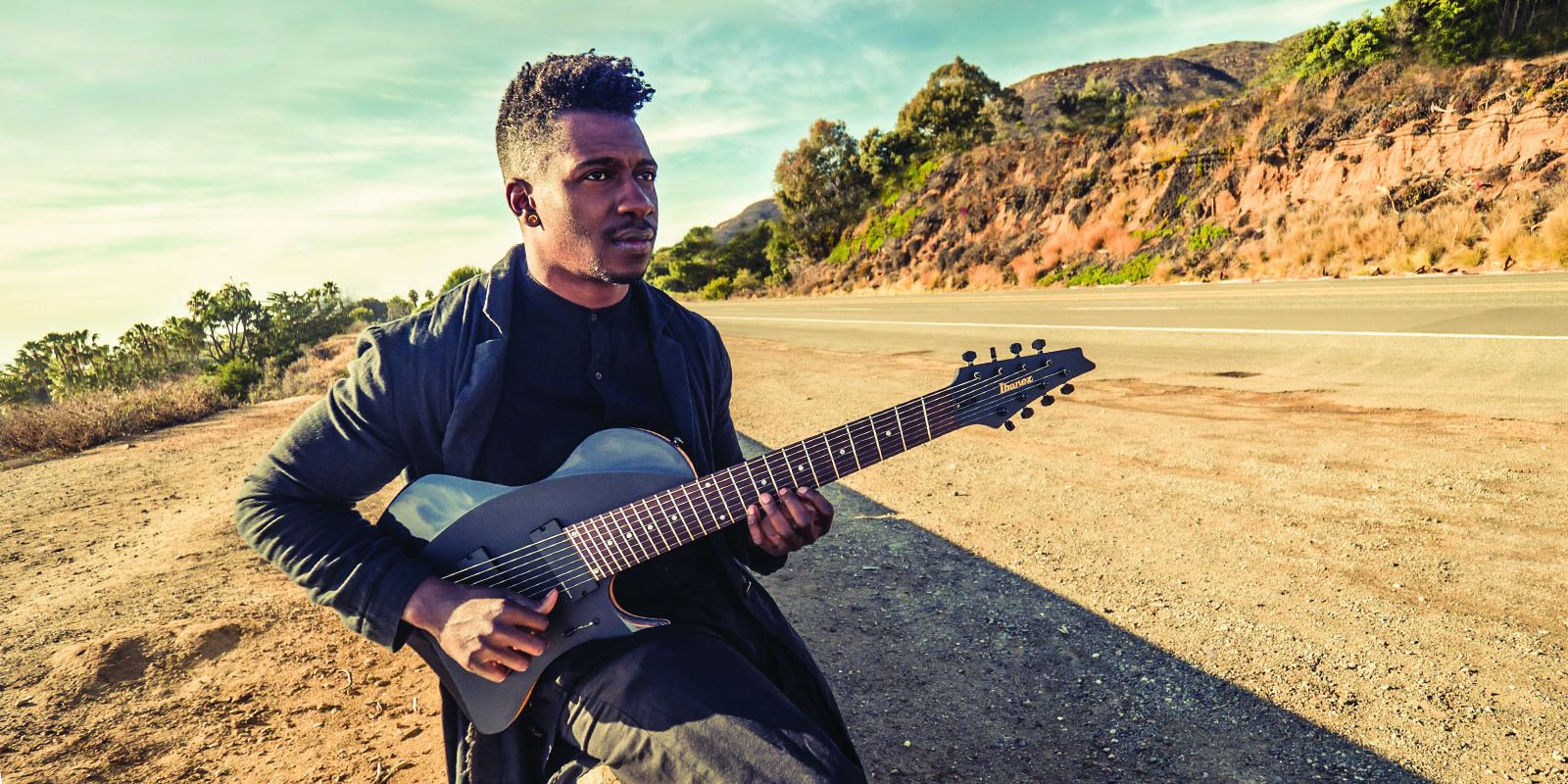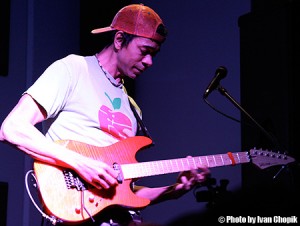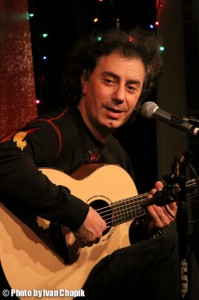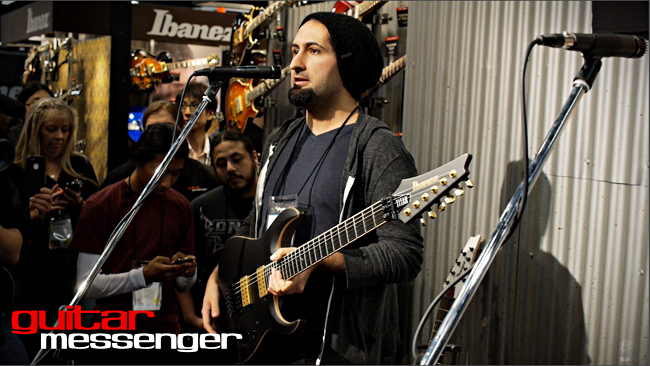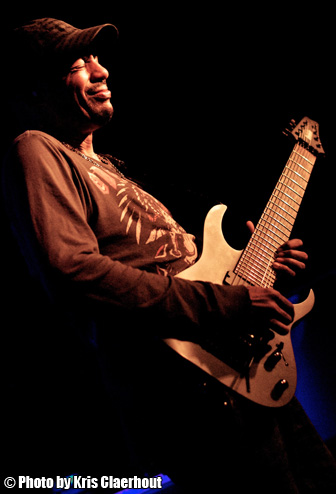 Whether you know him as the young shredder who made 1986’s Edge of Insanity or as the architect of the heavy prog riffs for Planet X and Devil’s Slingshot, Tony MacAlpine has never failed to wow and sway his fans as he does once again with his latest release. Having acknowledged the self-titled Tony MacAlpine as his greatest solo work to date, he backs up the claim with his virtuosic luster through his convictive guitar leads and heavily structured rhythmic passages.
Whether you know him as the young shredder who made 1986’s Edge of Insanity or as the architect of the heavy prog riffs for Planet X and Devil’s Slingshot, Tony MacAlpine has never failed to wow and sway his fans as he does once again with his latest release. Having acknowledged the self-titled Tony MacAlpine as his greatest solo work to date, he backs up the claim with his virtuosic luster through his convictive guitar leads and heavily structured rhythmic passages.
Not merely content to contain his keyboard flourishes as a lush ambient background, he flexes his piano prowess with fluid mastery and unrivaled authority honed since a gaspingly early age. And just as he enjoys riding his motorcycle through the scenic routes of Pasadena, California, he knows from his own carefully crafted legacy that he has paved a new way with this tour-de-force of a solo album.
JA: Your album Tony MacAlpine is an incredible landmark in your work as a virtuoso guitarist and keyboardist. What made you decide to put a solo record together after years of focusing on collaborative work?
TM: Thank you. Years of collaborative work with others and the desire to create some of my own new works after such a long time away from it really fueled the fire for me. I am happy that you enjoy the new CD, as there is such a fine line of doing things that you want to do at the moment and doing things that you should.
JA: How would you compare the making of this album to the making of previous solo albums?
TM: Not much has changed in that I am still working in my own studio to write and record all parts, but aside from that the opportunity presented itself to work with Ulrich Wild as head engineer and mixer… and wow did he ever knock this one out of the park. He really is something!!!
JA: Besides your work on the guitar, you are also a classically trained-pianist, and on this album you covered Robert Schumann’s ‘Dedication’ as the final track. In light of that, how much of your classical background would you say is prominent in your present day writing/playing?
TM: Classical music is one of the many foundations of art form that I have been blessed to have in my life at such a young age and for so many years later. I practice and play piano still a lot more than the guitar and I am constantly finding and discovering new works – for example, the writings of William Alwyn 1905-1985. I am able to really absorb the thinking of many composers, because I am very fortunate to be able to play their compositions. For me, this is something I cherish and also realize it has great bearing on what I am willing to write and record.
JA: Who were some of your primary influences during the making of Tony MacAlpine?
TM: I can’t say I have primary influences, because I am not really enthralled with listening as much as I am with the music making process. I also have quite a lot of previously recorded music that I can draw from to keep my inspirations slightly more grounded. And then, of course, from there I am able to take ideas that I might have explored before to a deeper level. Playing music for me on various instruments is also a great source of music inspiration – therefore I feel I am usually motivated. It’s really just a matter of deciding what it is I am trying to say in a piece.
JA: How challenging was it to adapt to the 8-string guitar? What kind of difficulties did it provide to you at first, if any?
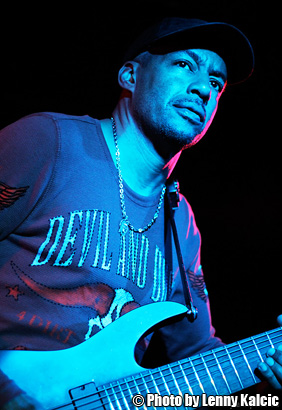 TM: There are no difficulties in playing the instrument. But the instrument itself has to have a place, sonically speaking, to fit into the modern instrumental band. After all, it is so low at times, pitch wise, that it has the ability to get in the way of what a bassist would play. On the other hand, it’s a worthwhile risk because the sonority of tone that the seventh and eighth strings produce is exciting and, at times, limitless.
TM: There are no difficulties in playing the instrument. But the instrument itself has to have a place, sonically speaking, to fit into the modern instrumental band. After all, it is so low at times, pitch wise, that it has the ability to get in the way of what a bassist would play. On the other hand, it’s a worthwhile risk because the sonority of tone that the seventh and eighth strings produce is exciting and, at times, limitless.
JA: What made you decide to stop using Carvin guitars after so many years? Do you see yourself sticking with Ibanez for a long time after your recent switch?
TM: The folks at Carvin are just super people who make first class instruments and I have had such a wonderful time playing their instruments for so many years. I was working with Carvin long before I was playing their guitars and the same with Ibanez. I used Ibanez effects in my guitar rig in the early days, and have always had a great communication with the people over there. It was a wonderful progression to be able to work closely with Ibanez on producing some really great guitars that I am able to incorporate into my style both in the studio and live.
JA: Apart from the Ibanez 8-string guitars used on this album, what other gear (pickups, amps, effects, etc…) was used? How has your setup changed over the years?
TM: I have used Hughes & Kettner Amps for many years, going back as far as the mid-90s. In the studio I have some great Tri-Amps that I record with and some very good Source Audio pedals to mess around with. I also have some Ernie Ball wah pedals and volume pedals that are a must for me in any session.
I am now using DiMarzio pickups in my main guitars on stage and I do not use any effects for recording. I record the amps pure and at mix down we start to add different things. Mainly, I would say for a live setting this is where my setup has changed the most, because I am using Hughes & Kettner Coreblades, which have all effects built into the heads and are just really simple, solid, and powerful.
JA: In addition to your solo career, you’ve worked with a number of bands and performed alongside Steve Vai. How have these experiences shaped you as a musician and what have you taken away from the collaborations?
TM: Steve is a wonderful player and music personality. His unique sound is unmistakable, as is his compositional strength. I am lucky to know him as a friend and musician and I’m of course super thrilled that I have had the time of my life playing music with him on stages all over the world. You gain many usable additives in life both as a person and player when you work with talent such as his.
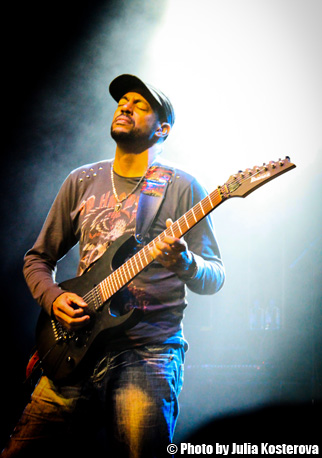 JA: Are there plans in the works with any of your bands, including your most recent collaboration with Seven The Hardway?
JA: Are there plans in the works with any of your bands, including your most recent collaboration with Seven The Hardway?
TM: Our plans right now are centered around touring and staying on the road as long as we possibly can. We have such a great line up in this band with Aquiles Priester on drums, Bjorn Englen on bass, and Nili Brosh on guitar. This band really cannot wait to get out and play some shows, where we can venture into the early recordings, as well as the new!
JA: When you aren’t making music, what do you do for fun to take a breather?
TM: I guess riding my bikes and watching movies. Old ones… really old ones. Haha!
JA: You’ve recently appeared on That Metal Show on VH1 Classic, as well as The Tonight Show with Jay Leno back in ‘93. How does performing on these kinds of television appearances differ from your live concerts? What was it like working with the producers and hosts of these shows and others you have appeared on in the past?
TM: Television is great. And I feel natural doing it, because when I was a young kid, my little sister and I would pretend we were on TV all the time. I mean I was on thousands of TV shows back then with her in the family living room! It really is no different for me.
If you already enjoy what you do, then that is half the battle. The other half is to just try and play well. I have been lucky to work with some of the greatest show producers and television personalities here in the USA as well as around the world.
JA: Who are some bands or solo artists that you would like to be touring or collaborating with in the future?
TM: I don’t know at the moment. We are making quite a few decisions on what steps to take concerning that and you know I am always excited to work with other bands that are like-minded. Our goal right now is to play this new CD or as much of it as possible in live formats.
JA: What advice can you offer to other guitar players out there trying to follow in your footsteps.
TM: Learning your craft and loving what you do is very important for me. Without that there really is not much of a reason to pursue the field of music. It’s a tough, rough road and it was never meant to be easy. So make lots of friends and always try to learn what you can from the more experienced players out there.
[Special thanks to Kris Claerhout, Lenny Kalcic, and Julia Kosterova for their wonderful photography!]



